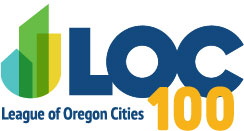State Shared Revenue
Cities receive payments from five different state shared revenue programs each fiscal year. Most shared revenues are distributed to cities based on population, but some use more complex distribution mechanisms. The five state revenue sources are highway trust fund revenues, marijuana tax revenues, liquor revenues, cigarette tax revenues, and 9-1-1 tax revenues. Eligible cities are required to file certifications with the state each year to receive these revenues. The details of the state shared revenues, including payment schedules, certification requirements, and use restrictions, are described in the LOC’s annual State Shared Revenue Report.

